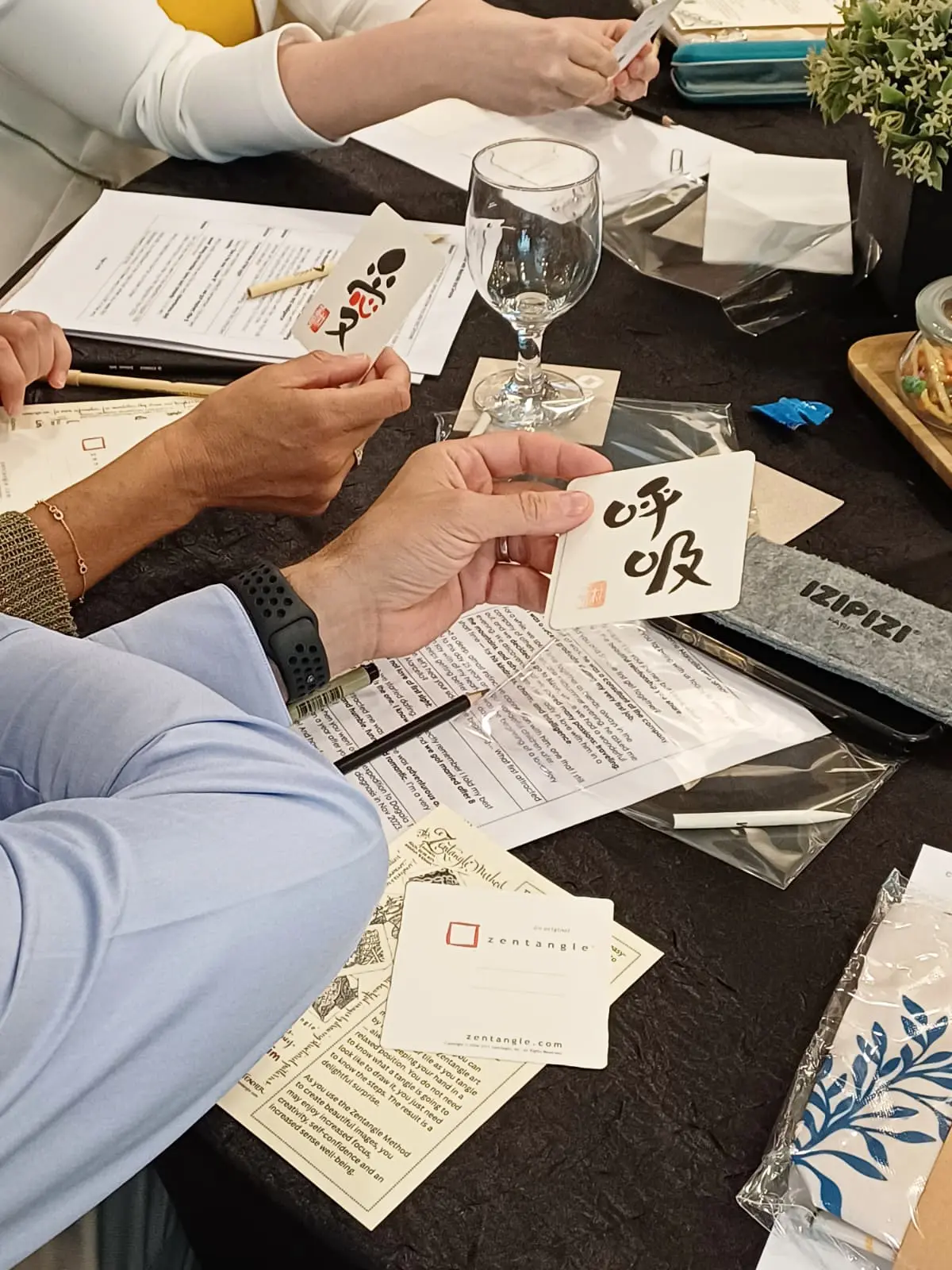News & Articles

Celebrating Hope and Healing at Survivors Connect 2025

For cancer patients, survivors, and their caregivers, every small victory matters. On a Saturday in August, Parkway Cancer Centre curated a gathering, Survivors Connect 2025, at Oasia Hotel Novena, where these victories were celebrated together.
The day’s programme was thoughtfully crafted to inform and empower, blending inspiring survivor stories with health insights and activities to nurture both body and spirit.
A MESSAGE OF STRENGTH AND CONNECTION
The day opened with a welcome address by Dr Tanujaa Rajasekaran, Senior Consultant, Medical Oncology, who emphasised the need for hope and support, and that cancer does not need to be faced alone.
“Having cancer can feel very isolating,” she said. “But support is everywhere, whether from your healthcare team, support groups, family, or friends. Shared burdens become lighter.”
By leaning on one’s medical care team and community, the journey is much less arduous. “Trust your medical team, follow treatment plans, eat nourishing meals, and celebrate small victories along the way,” she reminds.
To make her point, Dr Tanujaa shared inspiring stories of her patients, including Adrian, who developed stage four metastatic lung cancer at just 42. Despite daunting odds, Adrian chose to focus on fitness, travelling, and embracing life. Another survivor, Julian, who was diagnosed with cancer in his 20s, proposed to his fiancée during a Taylor Swift concert. “Life doesn’t stop with cancer,” she told the room, “And neither does love.”
A TALE OF TRIUMPH
Following Dr Tanujaa’s sharing was the testimony of Marcella Pesce, who was diagnosed with breast cancer in 2023. Accompanied by her husband Simone, Marcella spoke candidly about the shock of her diagnosis, the gruelling months of chemotherapy and radiotherapy, and the emotional toll of being confined in her own room.
“There were moments I felt I was losing everything,” she shared. “But I had to look inside myself for a different strategy. Instead of asking ‘Why me?’, I let go, lived day by day, and thanked my body for keeping me alive.”
Simone, who supported her through every treatment, added: “The hardest part was realising I wasn’t Superman. How do I go on with work? How do we tell our children? I had to ask for help— from the medical care team, our kids’ teachers, friends. Once I did, everything changed. We became stronger as a couple.”
Their message to fellow patients was simple yet powerful, “Fighting cancer is a marathon, not a sprint. There will be ups and downs. If you prepare for a marathon, you must take care of yourself.”
CARING FOR BODY AND MIND
After the morning of sharing, participants were invited to unwind with a gentle session of chair yoga and meditation.
The facilitator, who was also a certified singing bowl therapist, guided participants through breathing exercises and relaxation techniques accompanied by a sound bath, encouraging them to release tension and “send away worries and anxieties” and reminding them that healing is not only physical, but also emotional and spiritual.
RETHINKING FOOD CHOICES
Nutrition was next on the agenda, with Gerard Wong, Principal Dietitian at Parkway Cancer Centre, leading a lively presentation on ultra-processed foods. Using real-life examples, Gerard explained how to distinguish processed foods from heavily modified ones, and why balance matters more than perfection.
“For example, if you walk into a fast-food restaurant, how do you recognise which burger is the least processed?” He asked the audience.
Interestingly, for some fast-food restaurants, beef burgers were usually less processed compared to their chicken counterparts. Another useful tip was to always read the ingredients list on packaged foods. “If there are numbers and symbols in the list, it is better to avoid them.”
Questions from the audience ranged from whether mineral water counted as ultra-processed to whether soy products were advisable for breast cancer survivors. Gerard emphasised that what makes a good diet is highly individual. For instance, patients whose cancers are hormone-receptor positive have a tendency to avoid foods high in phytoestrogens such as soy.
“During treatment, eat what you can,” he advised. “After treatment, it’s about striking a balance. If you’re eating well most of the time, it’s okay to have the occasional treat.”
ART AS THERAPY
In the afternoon, participants turned to creativity with a session on Zentangle art. Using simple pen strokes, they created intricate patterns that were combined into a collective collage. The exercise, explained the facilitator, was not about artistic talent but about slowing down, letting go of judgment, and enjoying the meditative process of drawing.
“It’s an invitation to be kind to yourself,” participants were told. “Let the playful child in you draw, while the critical voice takes a break.”
FINDING LIGHT IN THE JOURNEY
As the day drew to a close, many participants reflected on the strength they drew from one another. One survivor shared, “Hearing the accounts of others who took a positive approach and carried on with their lives, that was valuable.” Another participant commented, “The Zentangle session was not just enjoyable. It reminded me to slow down, stay focused on the important things, have more patience and breathe.”
Above all, the event underscored a shared truth: cancer may change the course of life, but it does not erase the possibility of joy, love, and meaning.
As Dr Tanujaa reminded the room: “Hope is very important. The sun will always rise. And we celebrate every small win together.”
| POSTED IN | Nutrition, Psychological Health, Rehabilitation, Up Close and Personal |
| READ MORE ABOUT | Breast Cancer, Lung Cancer |
| PUBLISHED | 01 November 2025 |
